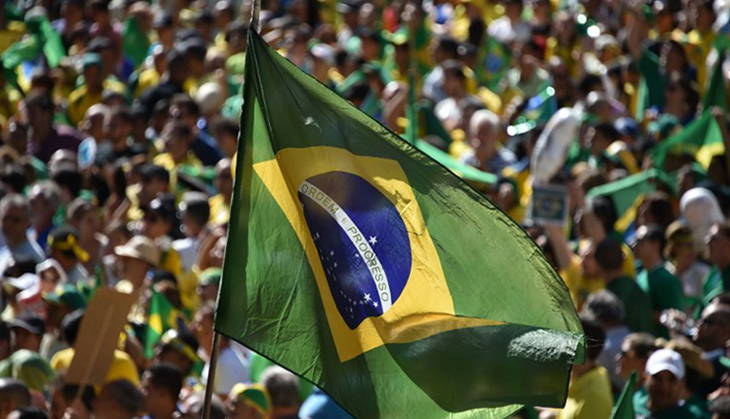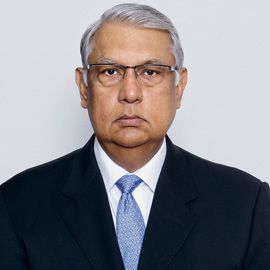President Rousseff may have to go. But where is Brazil headed?

- Brazil President Dilma Rousseff is close to being impeached
- This will be only the second such incident in the country
- What will the ramifications be
- Where is Brazil headed
Brazil has entered an uncharted political terrain with the lower house of Congress, or Parliament, voting in favour of impeaching Brazil's first female President Dilma Rousseff. It was a painful and humiliating blow for 68-year-old Rousseff in her second term as President.
This is the second impeachment in Brazil's independent political history after the country's first directly elected president, Fernando Affonso Collor de Mello, had to go in 1992.
Last October, a federal audit court judged that Rousseff, re-elected in 2014, violated finance laws. This paved the way for members of the lower house to establish a special committee and begin impeachment proceedings. This committee recommended that the legislature seek Rousseff's impeachment, leading to a debate and a vote.
The impeachment verdict was delivered after a raucous three-day debate telecast nationwide. The proposal was passed with over a two-thirds majority, necessary to send Rousseff's impeachment process to the Senate - the upper house.
The move
In the lower house, there were scenes of scuffling and jubilation, with a sea of Brazilian flags waved by Parliament members, when the votes crossed the two-thirds mark of 342. The member casting the 342nd vote was carried bodily by other members after he cast his vote.
The final tally went up to 367 votes favouring impeachment, with 137 against. There were seven abstentions and two no-shows.
Rousseff has not been accused of personal corruption but for fudging the national budget to show a lower budget deficit before her 2014 re-election bid.
The reality
This kind of fudging, which rolls over payments into a new financial year is common practice adopted by many politicians in Brazil.
She, however, has been tainted by the huge corruption scandal that engulfed Petrobras the state-owned oil company. The economic recession is another liability that she has to bear.
The supreme irony is that among Parliament members voting for impeachment there are 300 who facing graft, fraud and electoral violation charges. For instance, Speaker Eduardo Cunha, who led the charge against Rousseff, faces corruption and money-laundering charges related to Petrobras kickbacks. He also faces an ethics inquiry over undeclared Swiss bank accounts, and is the second in line to succeed Rousseff after Vice-President Michel Temer of the Democratic Movement Part (PMDP).
The 81-member Senate now has to vote in early May on the impeachment resolution of the Lower House. A vote by a simple majority will set up Rousseff for trial by a Senate Committee within 180 days.
She will be suspended from her office during this period and Temer, seen as a challenger to Rousseff, will take over as acting President until her fate is decided. He will serve until 2018, when the next election is due, if Rousseff is found guilty.

Popular reaction
It seems that the people of Brazil have abandoned Rousseff. The result of the impeachment vote was greeted with fireworks in mega cities like Rio de Janeiro and Sao Paulo. Hundreds of thousands of Brazilians - both pro- and anti-Rousseff - flooded the streets in peaceful demonstrations in almost every city and town.
A recent public poll has shown that 60% Brazilians wanted Rousseff out of office. Public outrage against her mounted after she appointed her predecessor, Lula da Silva, to a Cabinet post to enable him escape investigation into the Petrobras scandal.
A Cabinet Minister cannot be prosecuted while in office under Brazilian laws.
The divide
The scandal is the biggest corruption case in Brazil's history and prosecutors have unearthed a racket, which ran for over a decade with oil executives and politicians receiving bribes and kickbacks running into millions.
The 200 million people of Brazil are today deeply divided, a situation the country has not witnessed since the end of military rule in 1985. Rousseff's leftist Workers' Party has been in power for 13 years.
She presided over Brazil's impressive economic growth that peaked in 2010 when its GDP reached around $2.6 trillion, making Brazil one of the top 10 economies in the world.
Since 2010, the Brazilian economy has shrunk gradually, as the global economy has slowed. Brazil, as a large exporter of commodities, has also been hit hard by the slowdown in the Chinese economy.
Brazil's lower middle and working classes have supported the welfare orientated policies of the Workers' Party that has helped bring millions out poverty. The slowing economy, however, has created growing unemployment among the very people that the Workers' Party has counted as its support base. The Party has blamed "coup mongers" and vowed to fight it out in the Senate and the Rousseff government has expressed confidence that the Senate will defeat the impeachment resolution.
A conspiracy?
Rousseff herself has decried the move against her as a "coup". Her government's application at the Supreme Court to dismiss the result of the impeachment vote on grounds of it being "contaminated" has been rejected. The Brazilian Democratic Movement Party, PMDP a coalition partner has abandoned the government, leading to speculation that both Temer and Cunha are involved in destabilizing Rousseff.
Many observers believe that Roussseff has antagonised the powerful business lobbies who have banded together to throw out the incumbent President and move Brazil towards more right-wing, market-friendly economic policies.
Brazilian workers suspect this would lead to privatisation and loss of jobs. This shift has been obvious with Brazil abandoning solidarity with other developing countries in global trade talks at a time when the World Trade Organisation is headed by a Brazilian.
Who next?
Can Rousseff survive the impeachment process and preside over the Summer Olympics scheduled to be held in six months in Rio de Janeiro?
The possibility seems slim. Brazil is going through its worst economic recession in many decades.
The present trend of rising inflation and shrinking GDP is unlikely to improve as Brazil battles with other issues like the mosquito-borne Zika virus that led to the birth of thousands of deformed babies and the forthcoming Olympic Games.
Vice-President Temer has positioned himself as Rousseff's successor, if she is ousted from Presidency. A successful lawyer and a back-room political negotiator, 75-year-old Temer has projected himself as a senior statesman.
His PMDP party has not been known to be ideological and has allied itself with other parties primarily in pursuit of political power. In Brazil's politics every major politician is tainted and Temer, too, could face impeachment proceedings following a Supreme Court Ruling directing the Parliament to do so.
This may not fructify, given Temer's current situation. He seems to enjoy enough support in Parliament.
The possibility that Brazil is forced into a new election cannot be ruled out since the Supreme Court is still to rule on a case which alleges that Rousseff's election in 2014 was funded with money generated by corruption.
The Supreme Court could annul the election and call for a new one, making Temer's Presidency a short one.
The ramification
The political destabilisation of one of the largest countries in the world and the largest in Latin America is not a good sign for the region.
It is also bad news for BRICS, a group which has 42% of the world's population and a GDP of USD 16 trillion.
India took over the chairmanship of this group in February and is set to host the BRICS Summit later this year.
The last BRICS Summit was held in Ufa, Russia. Brazil's long winter of discontent is not likely to end soon and may well extend over several summers as well.
(The author is a Distinguished Fellow at the Delhi-based Observer Research Foundation and a former diplomat. He retired as Secretary in the Ministry of External Affairs, Government of India)
Edited by Shreyas Sharma
First published: 19 April 2016, 8:37 IST






![BJP's Kapil Mishra recreates Shankar Mahadevan’s ‘Breathless’ song to highlight Delhi pollution [WATCH] BJP's Kapil Mishra recreates Shankar Mahadevan’s ‘Breathless’ song to highlight Delhi pollution [WATCH]](https://images.catchnews.com/upload/2022/11/03/kapil-mishra_240884_300x172.png)

![Anupam Kher shares pictures of his toned body on 67th birthday [MUST SEE] Anupam Kher shares pictures of his toned body on 67th birthday [MUST SEE]](https://images.catchnews.com/upload/2022/03/07/Anupam_kher_231145_300x172.jpg)






